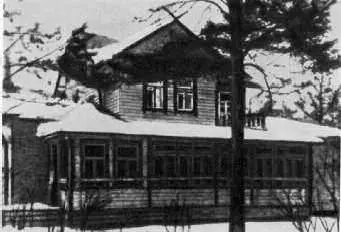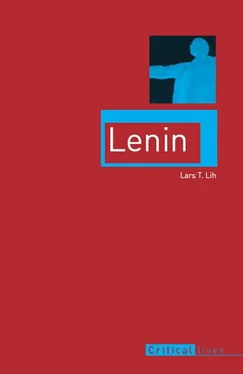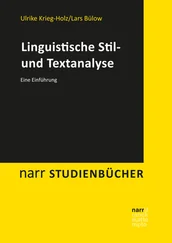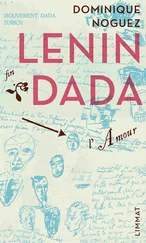Despite the war, Lenin’s attention during 1904 was turned toward disputes within the party, and he wrote practically nothing all year besides factional polemics. But even prior to the outbreak of the revolution in January 1905, Lenin could not imagine a revolution in any terms other than that of the proletariat leading the narod . Writing in late 1904 Lenin explained in his own way the relative quiescence in the militant activity of the Russian worker movement in the year prior to the revolution. ‘The proletariat is holding itself back, as it were, carefully observing the surrounding environment, gathering its forces, and deciding the question whether or not the moment for the decisive struggle for freedom has come.’ But this state of affairs could not last. Lenin was confident that military disaster in the war against Japan would lead to a tremendous outburst of protest from the narod . When this happened, ‘the proletariat will rise and take its stand at the head of the uprising to fight and achieve freedom for the entire narod and to secure for the working class the possibility of waging the open and broad struggle for socialism, a struggle enriched by the whole experience of Europe’. 5
Even after the revolution broke out Lenin focused primarily on organizing a new party congress that would consolidate Bolshevik control of the party. Lenin got his congress, which met in London during April 1905, but since it was boycotted by the Mensheviks, it became a purely Bolshevik affair – indeed, it is regarded by some as the founding congress of Bolshevism. The delegates sent abroad by local party committees in Russia ambitiously encouraged each other to focus on armed insurrection, and then dispersed back home.
After London, Lenin remained in Geneva and returned to Russia only after the amnesty that accompanied the October Manifesto. He arrived in Petersburg on 8 November, although, since habits of konspiratsiia died hard, he cautiously disguised himself to ‘look more like a minor Petersburg official than like himself’. 6In the last months of 1905 Lenin participated in the work of the Petersburg Soviet, but continued to give his main attention to party reorganization.
The militancy of 1905 had led to considerable grass-roots unity between the two Social Democratic factions, often in a Bolshevik direction, and Lenin felt that the party could now be unified in a satisfactory way. At one party congress in Stockholm in 1906 – called the ‘Unity Congress’ in a triumph of hope over experience – the Mensheviks were in a majority. At the next congress, in London in 1907, the Bolsheviks were in a majority. But these seesaws hardly mattered. The Bolsheviks and the Mensheviks were by now separated not only by personal animosities but by deep differences that often revealed themselves in disputes over the proper way to remember 1905. According to a joke current at the time, some police officers escorting a Menshevik and a Bolshevik to prison wanted to go off for a drink. They decided they could safely leave their two prisoners without supervision. Anybody else would have used the opportunity to make an escape, but a Menshevik and a Bolshevik would invariably spend the whole time arguing with each other.
In 1906–7 Lenin lived in some ways not unlike that of a Western socialist party leader. He spoke to public gatherings in St Peters burg, wrote articles for the legal press, and consulted with fellow activists. But ‘the days of freedom’ of late 1905 were becoming a fading memory as the tsarist government systematically rolled back the space for legal opposition. By August 1906 Lenin found it convenient to move from Petersburg to nearby Finland, where the political situation was somewhat more liberal. It was a sign of the times when at the end of 1907 Lenin’s tome on agrarian policy was ‘arrested’, that is, all copies were confiscated (it was not legally published until 1917). In order not to meet a similar fate himself, Lenin (and later his wife, whom he met en route), left for Geneva and embarked on his second emigration period.

Vasa Cottage at Kuokkala, now Repino, north of St Petersburg in the semi-autonomous Grand Duchy of Finland, where Lenin hid from the police in 1906–7.
In early 1906 Lenin directly revealed his own deep emotional reaction to the revolution he was living through and, as usual, the occasion was a polemic against his life-long enemy, philistine scepticism. Lenin’s target was a liberal professor who bemoaned what he called ‘the revolutionary whirlwind’, a destructive and unhinged period during which the unreason of the mob left no room for insight and intellect, as opposed to the safe and sane days of reasonable and constructive progress. Lenin exploded against this attempt to ‘spatter revolutionary periods and revolutionary methods of creating history with the slime of philistine indignation, condemnation and regret’. 7In response Lenin made a stirring defence of the ‘insight of the masses’ during 1905.
Led by the urban workers, the masses had effectively wielded a ‘purely proletarian weapon, the mass political strike, on a scale unprecedented even in the most developed countries’. They had set up new authoritative institutions: the myriad soviets, peasant committees and other organizations that had spontaneously sprung up during the revolution. These new institutions were distinguished by extreme democratism: ‘a public authority [ vlast ] open to all, one that carried out all its functions before the eyes of the masses, that was accessible to the masses, springing directly from the masses, and a direct and immediate instrument of the mass of the narod , of its will’. 8Lenin did regret the anarchic violence of the masses – not because it was violent but because it was anarchic. As Lenin expressed it a year or so later, a revolutionary Social Democrat should never indulge in ‘hackneyed, philistine, petty-bourgeois moralizing’ about violence. The proper response was rather to transform ‘aimless, senseless, sporadic acts of violence into purposeful, mass violence’. 9
The basic premise of Lenin’s scenario had always been the claim that the capitalist transformation of Russia was calling forth spirits from the vasty deep of the people, spirits powerful enough to topple the tsar. The revolution of 1905 showed that these spirits had indeed come when they were called. It was therefore a vindication of Lenin’s ‘other way’ to achieve the dreams of his brother Alexander:
Is it good that the narod should apply unlawful, irregular, unmethodical and unsystematic methods of struggle such as seizing their freedom and creating a new, formally unrecognized and revolutionary authority, that it should use force against the oppressors of the narod ? Yes, it is very good. It is the supreme manifestation of the narod ’s struggle for freedom. It marks that great period when the dreams of freedom cherished by the best men and women of Russia are translated into practice , when freedom becomes the practice of the vast masses of the narod , and not merely of individual heroes. 10
The Role of the Peasant in Lenin’s Heroic Scenario
Looking back at the Bolsheviks through the lens of post-1917 events, particularly Stalin’s disastrous collectivization and its consequences, we tend to assume that Bolshevism was organically anti-peasant. Yet at the time of the 1905 revolution an informed outside observer praised the Bolsheviks precisely because they were they were ‘the popular faction’, in contrast to the Mensheviks and their ‘attitude of suspicion toward the peasantry’.
Читать дальше













